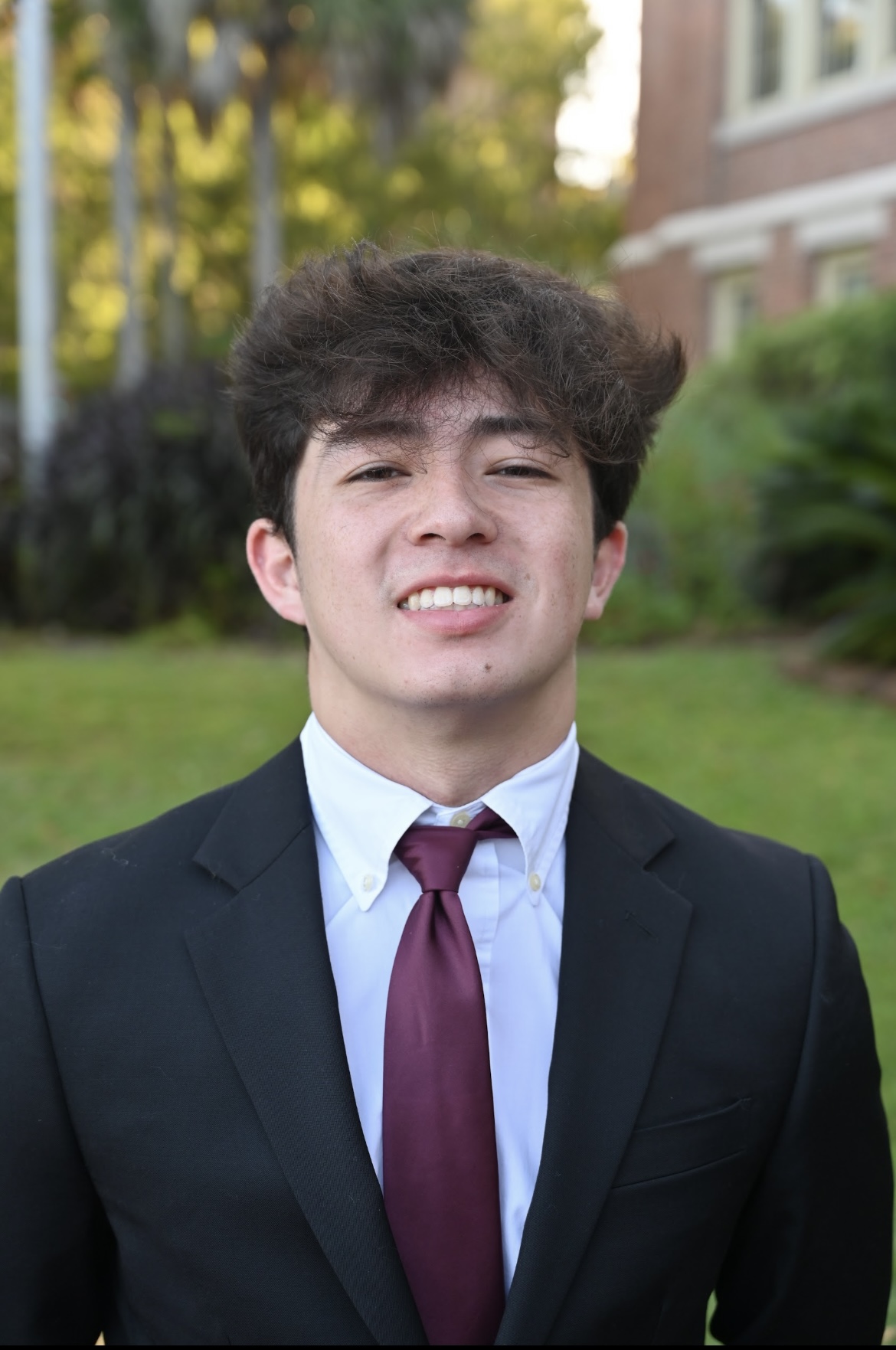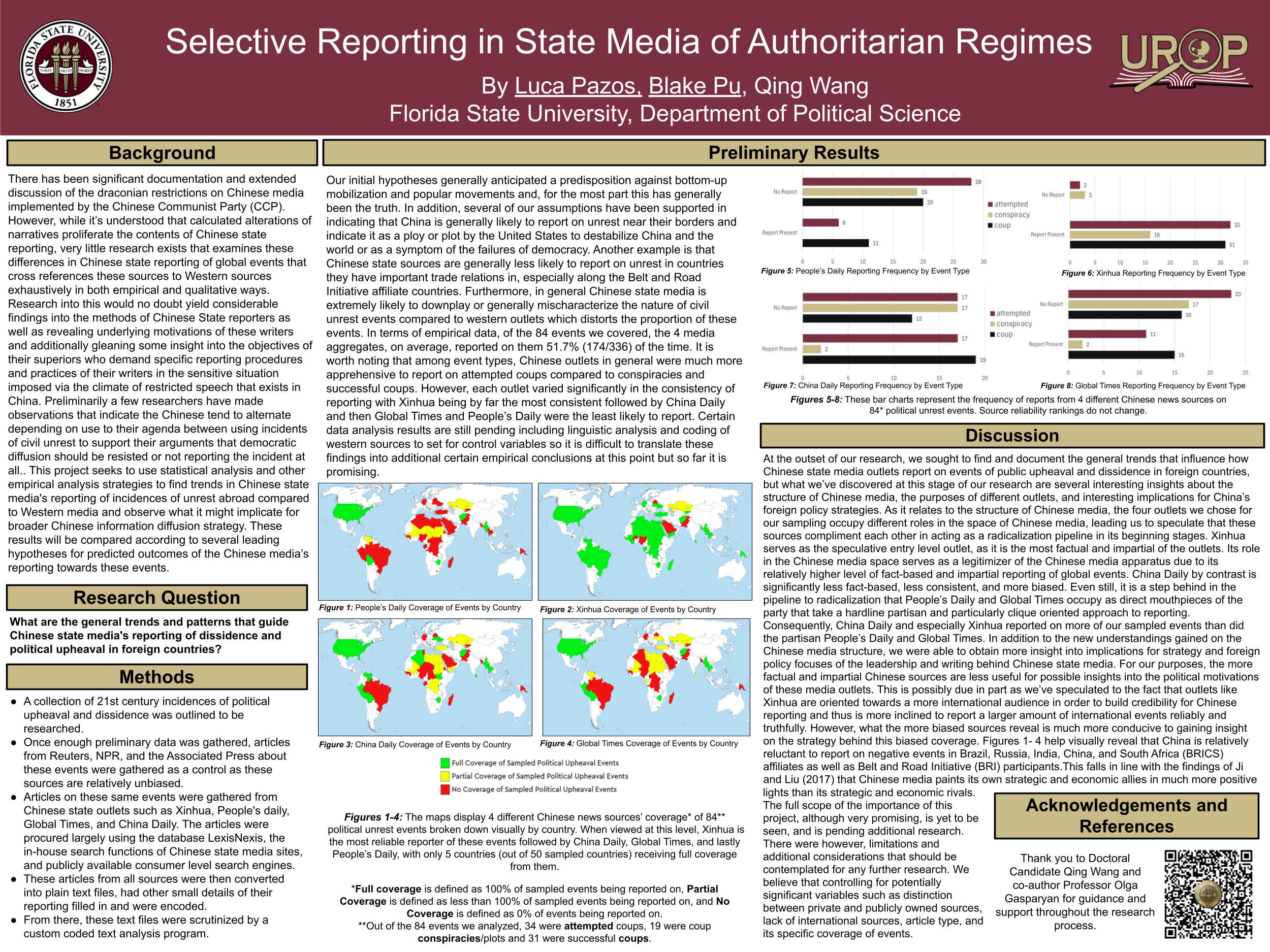Research Symposium
24th annual Undergraduate Research Symposium, April 3, 2024
Blake Pu Poster Session 1: 9:30 am - 10:30 am /174

BIO
My name is Blake Pu and I'm a first-year from Orange Park, Florida studying at Florida State University. While I'm studying Mechanical Engineering I've long had a passion for history and social sciences. I hope to use my UROP experience to pursue further research in these fields. After completing my undergrad here at Florida State I would like to go to law school. I am involved with a number of organizations on campus including the FSU Cheerleading Team, Presidential Scholars, Honors Legal Scholars, Student Government Association, the Asian Student Union, and more! As the descendant of Chinese immigrants this project was particularly interesting to me as a confluence of both my passions and my heritage. I hope that I can leverage this experience to impact the research community and understandings of my research topic to be understood in terms of empirical data and structural analysis. In addition I would like to use this experience as the starting point for a longer and more illustrious career of research involvement particularly as it pertains to my interests of social sciences, engineering, history, business and law.
Selective Reporting in State Media of Authoritarian Regimes
Authors: Blake Pu, Qing WangStudent Major: Mechanical Engineering
Mentor: Qing Wang
Mentor's Department: Political Science Mentor's College: College of Social Sciences and Public Policy Co-Presenters: Luca Pazos
Abstract
Historical waves of political upheaval, particularly in the last 40 years have demonstrated the power and pervasiveness of the media’s role in contributing to political mobilization. In response, autocratic governments have employed measures to deter citizens from emulating successful collective action abroad. China offers a pertinent case study for understanding restricted access to independent media because of the state apparatuses that exist to wield strategic control over the media by the government. Past research has indicated possible evidence of bias towards more positive reporting of nations with a strong economic relationship with China. However, there is still a significant gap in research regarding patterns of reporting in this massive media infrastructure. This project investigates patterns of reporting and censorship in Chinese state media with an emphasis on coverage of political unrest abroad. Herein we present research that compiles articles from several Chinese state media outlets on international events such as coups, protests, unrest, and civil conflict to cross-reference them with western outlets reporting on the same events in the same time frame in order to observe trends, differences, and discrepancies between them. The methods used consist of linguistic statistical analysis and qualitative analysis. The current results indicate that among many other interesting developments, Chinese state outlets are much less likely to report on political upheaval, and when they do, they are far more likely to attribute them to outside intervention (especially if they suspect US involvement), and they often report on these events in a negative light.
Keywords: China State Media

